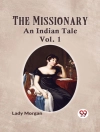Hyperion: A Romance (1839) is a novel by Henry Wadsworth Longfellow. Although he is known predominately as one of the leading American poets of the nineteenth century, Longfellow began his career writing moderately successful travelogues, stories, and novels. Inspired by his travels throughout Europe, as well as by the death of his first wife, Longfellow published Hyperion: A Romance to lukewarm critical response. Although less significant than his lyric and epic poetry, Hyperion captures an artist coming into his own within a Romantic tradition flooded with major and minor figures across the globe.
Modeled partly on Goethe’s Wilhelm Meister’s Lehrjahre (1796), Hyperion: A Romance is the story of Paul Flemming, a young academic who travels to Germany following the loss of a close friend. Taking in the sights, sounds, folk tales, and music of the countryside, towns, and villages he visits, Flemming muses on the position of humanity in the world and the meaning of art in relation to nature. Filled with such lofty thoughts, he is entirely unprepared to meet and fall in love with a German woman. At a moment of growth and on the brink of reconciling with his trauma, Flemming attempts to offer himself to another only to find that life has a strange way of reflecting the mind of the artist. Hyperion: A Romance is a fascinating blend of travel narrative, philosophy, and bildungsroman from a writer with a poet’s sense of the world.
This edition of Henry Wadsworth Longfellow’s Hyperion: A Romance is a classic of American literature reimagined for modern readers.
Since our inception in 2020, Mint Editions has kept sustainability and innovation at the forefront of our mission. Each and every Mint Edition title gets a fresh, professionally typeset manuscript and a dazzling new cover, all while maintaining the integrity of the original book.
With thousands of titles in our collection, we aim to spotlight diverse public domain works to help them find modern audiences. Mint Editions celebrates a breadth of literary works, curated from both canonical and overlooked classics from writers around the globe.
Об авторе
Henry Wadsworth Longfellow (1807-1882) was an American poet. Born in Portland, Maine, Longfellow excelled in reading and writing from a young age, becoming fluent in Latin as an adolescent and publishing his first poem at the age of thirteen. In 1822, Longfellow enrolled at Bowdoin College, where he formed a lifelong friendship with Nathaniel Hawthorne and published poems and stories in local magazines and newspapers. Graduating in 1825, Longfellow was offered a position at Bowdoin as a professor of modern languages before embarking on a journey throughout Europe. He returned home in 1829 to begin teaching and working as the college’s librarian. During this time, he began working as a translator of French, Italian, and Spanish textbooks, eventually publishing a translation of Jorge Manrique, a major Castilian poet of the fifteenth century. In 1836, after a period abroad and the death of his wife Mary, Longfellow accepted a professorship at Harvard, where he taught modern languages while writing the poems that would become Voices of the Night (1839), his debut collection. That same year, Longfellow published Hyperion: A Romance, a novel based partly on his travels and the loss of his wife. In 1843, following a prolonged courtship, Longfellow married Fanny Appleton, with whom he would have six children. That decade proved fortuitous for Longfellow’s life and career, which blossomed with the publication of Evangeline: A Tale of Acadie (1847), an epic poem that earned him a reputation as one of America’s leading writers and allowed him to develop the style that would flourish in The Song of Hiawatha (1855). But tragedy would find him once more. In 1861, an accident led to the death of Fanny and plunged Longfellow into a terrible depression. Although unable to write original poetry for several years after her passing, he began work on the first American translation of Dante’s Divine Comedy and increased his public support of abolitionism. Both steeped in tradition and immensely popular, Longfellow’s poetry continues to be read and revered around the world.












